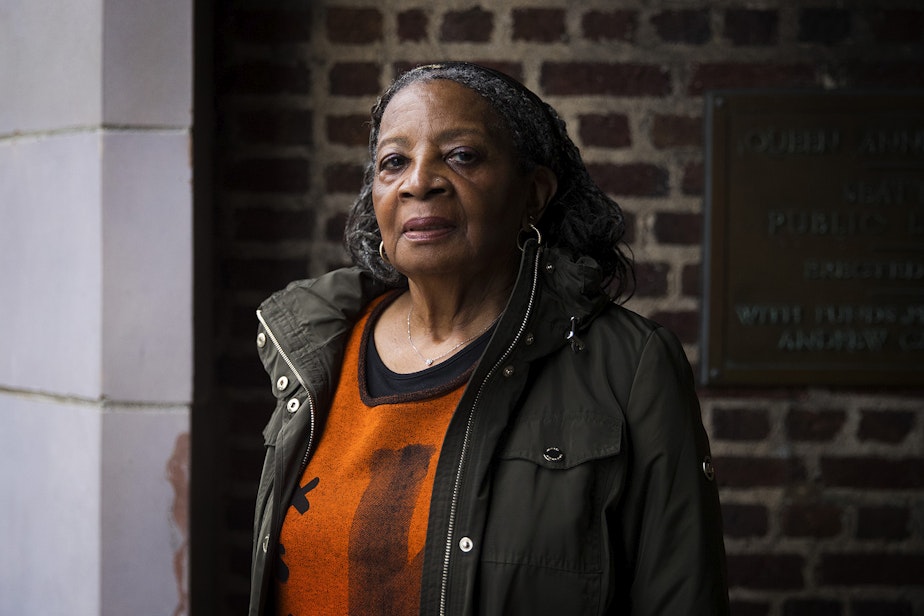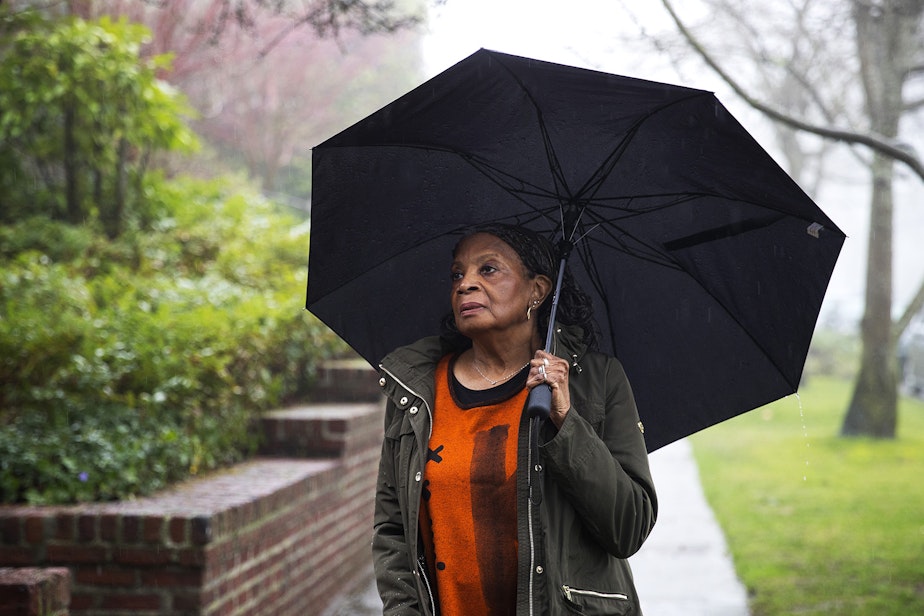'Cheering yes!' This Seattle poet believes this time may be different

In the late 1960s, poet Colleen McElroy taught speech and hearing sciences at Western Washington University.
Bellingham, where the university is located, was a very white city. But it was a liberal college town, and McElroy found a like-minded group of people working on civil rights issues. She remembers the literary events they put on.
“Some of the poems I heard were poems that gave a glimpse through the window of what it is to be Black in America,” she says. “But none of these poets were Black.”
McElroy didn’t think much of those poems.
When she told her friends she could do better; they told her to put up or shut up.
She’s been writing ever since.
“It may seem as if I’m writing the same poem over and over again. But when the events don’t change, what can you do?” she says.
McElroy spent part of her childhood in St. Louis in the late 1930s and early 1940s. She remembers she couldn’t go to the playground at the end of her street, because it was for white children only.
“I don’t think people are, in certain parts of the country, as easy with that kind of discrimination as they used to be,” she says. “And that’s brought about a change. It’s not like the Black people changed!”
McElroy’s still angry about that. She’s confronted racism many times since then.
In 1984, she became the first Black woman tenured professor at the University of Washington.
When she proposed teaching an African American literature course, her colleagues wondered if there would be enough material to fill the semester.
So McElroy understands what fuels the anti-racism protests we’re seeing now. She says it’s more than police killing George Floyd in May. They’re the result of more than a century of frustration and anger.
“I can’t say they started three weeks ago. I’m more inclined to say they started in the 1920s,” she says.
In 1921, white mobs attacked black residents and businesses in Greenwood, a neighborhood in Tulsa, Oklahoma. Hundreds of people died in what historians call the single worst incident of racial violence in American history.
McElroy says what’s different now is that we have easy access to cameras that can document the violence and immediately post it online.
“Once George Floyd’s murder became a public issue, it grew. And now it has a life of its own,” she says.
Three months into the coronavirus pandemic, Public Health Seattle-King County declared racism a public health crisis. Demonstrators went out in forces, facing down both challenges.
They’re calling for an end to police violence against Black people. Some have compared the protests to the Civil Rights movement in the late 1960s like when McElroy was there, actively working for civil rights.
McElroy isn’t out marching in the streets right now. She’s 85 years old, and she has an underlying lung condition. But even in the 1960s, she wasn’t big on demonstrations.
“I haven’t been a very good warrior; I have to confess,” she says. “I just don’t like people throwing things at me, or spitting on me, or as happened once, peeing on me.”
Civil Rights activists in the 1960s faced retaliation like that of today, and worse.
McElroy is worries about the welfare of the people who’ve chosen to protest racism in this time of coronavirus.
“I never imagined, when I was younger, that I would be calling my son, who’s a grown man, and saying are you safe?” she says. “Don’t go out there tonight, I’m telling you, just don’t go out tonight. And he calls me and says are you safe? Are you wearing a mask and washing your hands?”
McElroy has seen too much in her lifetime to expect a major revolution this summer.
But when she watches the global protests, when she sees people of all races out in the streets chanting Black Lives Matter, McElroy can’t hold back a little glimmer of hope.
Maybe this time, things really will be different.
“I’m like cheering, yes, yes!” she says. “I want all the cities to do this everywhere! I want them to stand up and say ‘stop, no more, enough!’”





